#annotated bibliography
Explore tagged Tumblr posts
Text
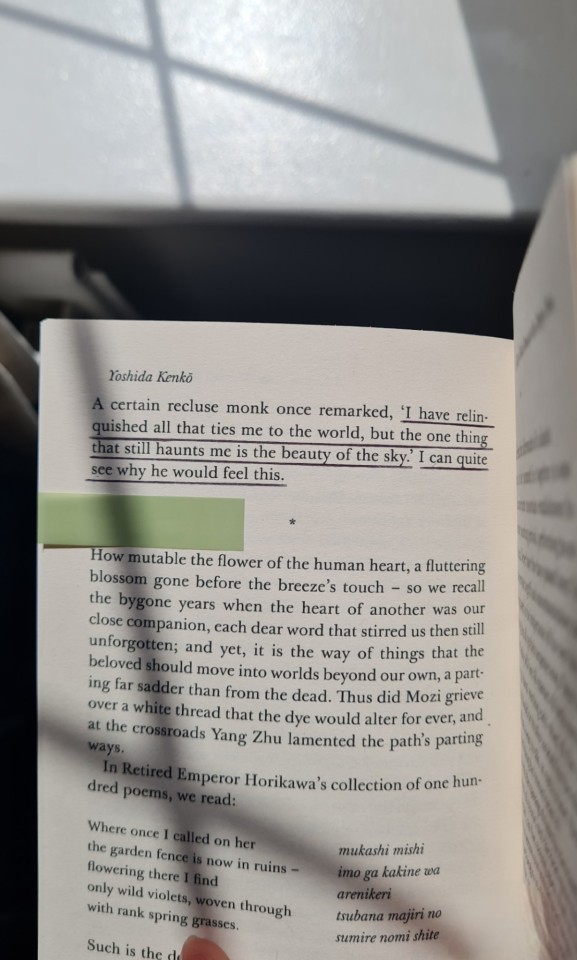
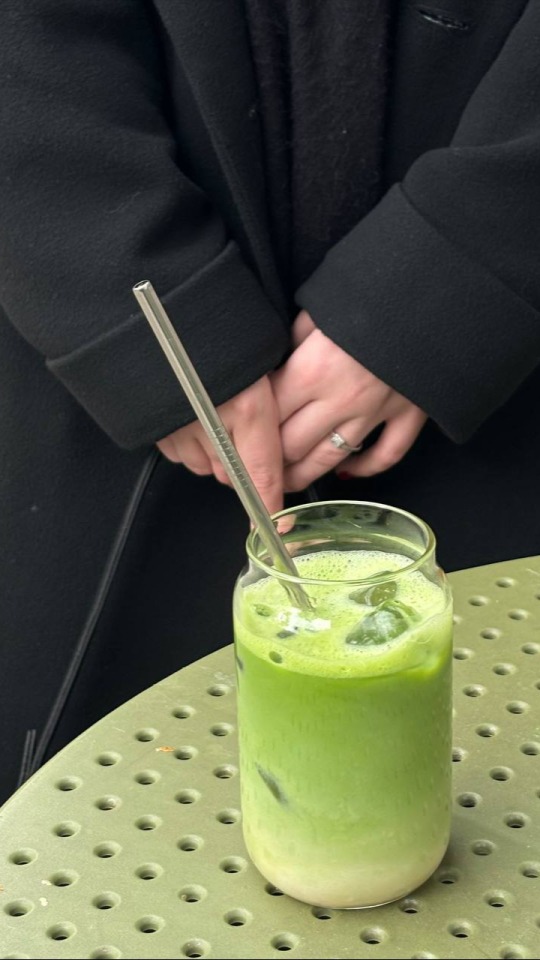
first read of may — a cup of sake beneath the cherry trees by yoshida kenkō
moonlight, sake, spring blossom, idle moments, a woman's hair. 'a cup of sake beneath the cherry trees' is a collection of fragments from the journal of a 13th-century monk, as he reflects on the pleasures of life and its passing moments. i think there's something in here for everyone to admire, with its reflective themes, philosophical undertones, and beautiful writing and imagery.
i definitely recommend!! 🌱
#3.5 stars#classics#book review#review#literature aesthetics#books#book#bookish#bookblr#bookworm#bookstagram#dark academia#booklover#books and libraries#reading log#a cup of sake beneath the cherry trees#yoshida kenko#studyblr#study space#study tips#quotes#annotated bibliography#book log
650 notes
·
View notes
Text


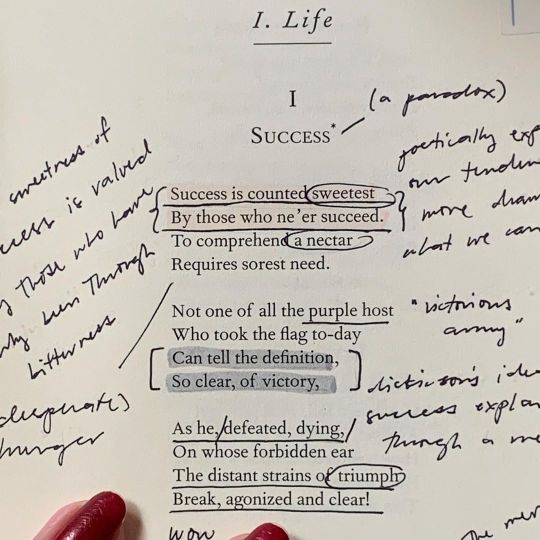

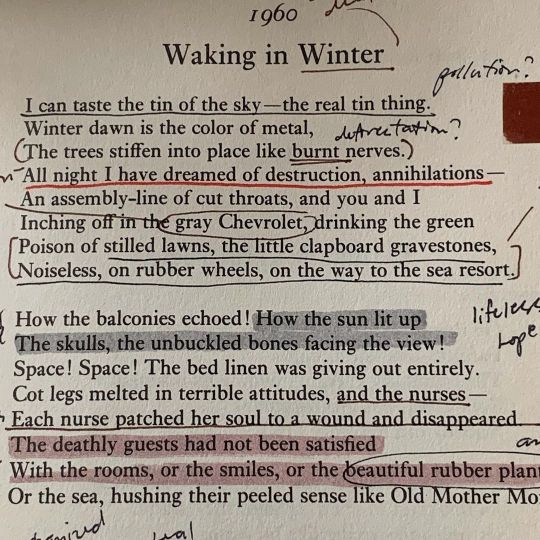

Annotated books>>>
insta credit- @wmgpdlv
#studyblr#dark acadamia aesthetic#study aesthetic#student#study motivation#dark academia#books#aesthetic#dark aesthetic#booklr#annotating books#art of annotating#annotated bibliography#annotations#annotators#cozy aesthetic#cottagecore#cozy autumn#cozy#coffee#coffetime#naturecore#nature#light academia#literature#life quotes#books & libraries
231 notes
·
View notes
Text
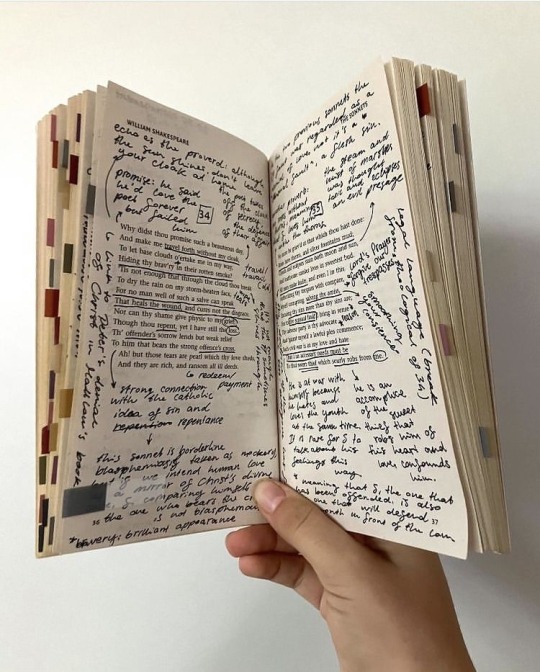
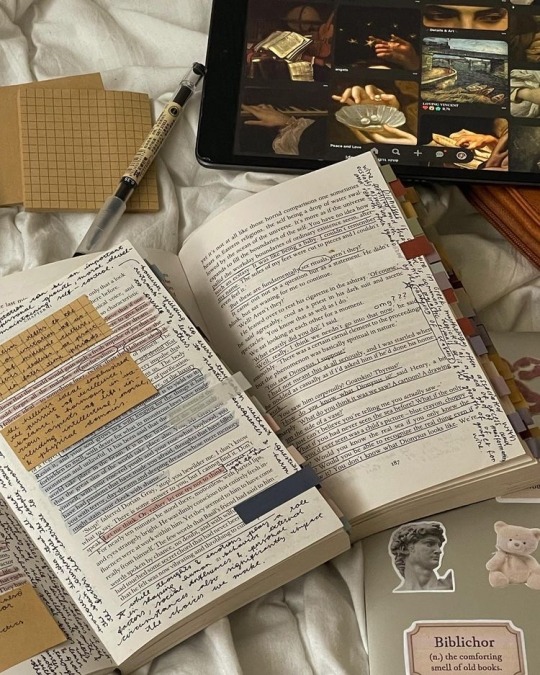
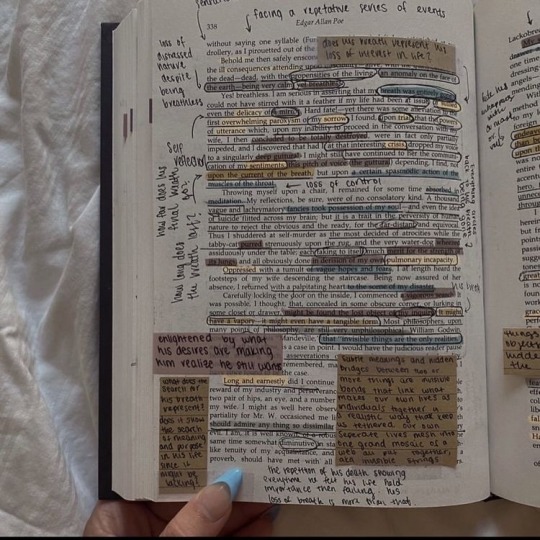


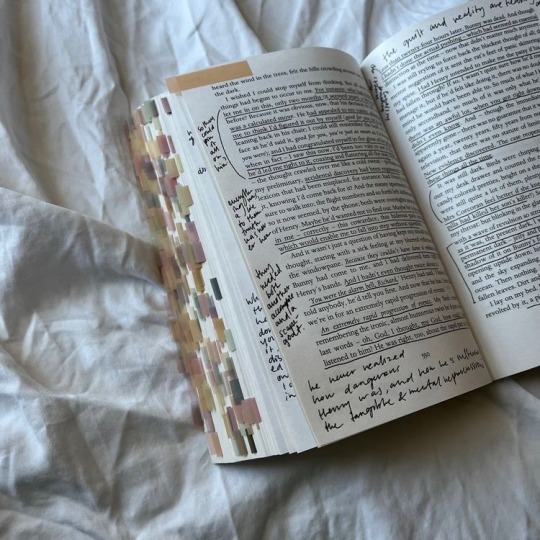
The art of annotations | @pagesofjasmine
via: Pinterest
#aesthetic#chaotic academia#classic academia#dark academia#dark academia aesthetic#university#classic literature#books and libraries#books and coffee#books and literature#book annotations#bookish#booklover#annotations#writer#writing#booknotes#notes#annotated books#annotated bibliography#light acadamia aesthetic#study aesthetic#Bookstagram#book aesthetic#book and reading#analysis#book analysis#bookaddict#bookaholic
360 notes
·
View notes
Text
AuDHD Annotated bibliography anyone?
HEY TUMBLR. I am putting together an annotated bibliography for AuDHD of public access media I like or am interested in for me and a colleague of mine. The audience is adults with AuDHD and people interested in learning about AuDHD. Is this of interest to other folks out there? Thx.
#neurodiversity#neurospicy#audhd#actually audhd#actually autistic#neurodivergent#actually adhd#annotated bibliography
7 notes
·
View notes
Text
Assignment that should've taken one hour takes 5 hours to complete because idiot can't focus and stay put
#its 2am#this was assigned last week#I started at 9pm#due today at 6pm#but I turned it in!#annotated bibliography#op🦐
4 notes
·
View notes
Text


Got two new books at the library book sale! I’ve read Wrong Place, Wrong Time but I wanted my own copy to annotate with. I have not read Hangsaman but Shirley Jackson is great so I’m sure this will also be great.
31 notes
·
View notes
Text
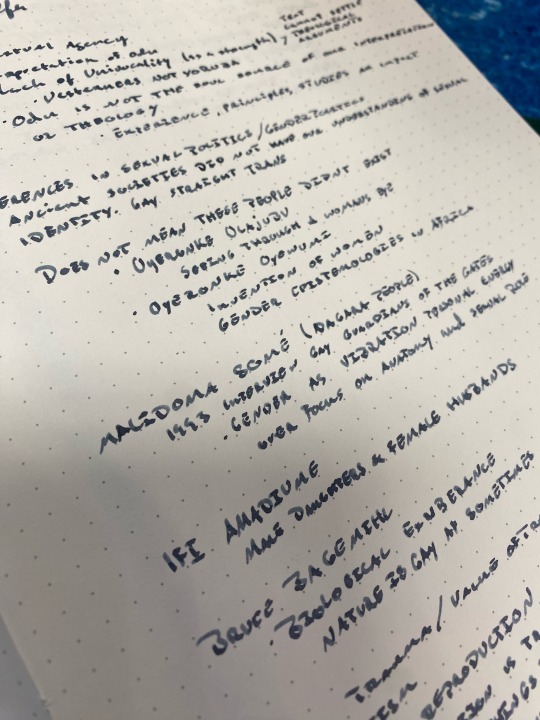
Todays notes.
Printed instead of my usual cursive. Working on a rough annotated bibliography for queerness and Ifa.
Pen: Lamy Safari with a 1.1 mm stub
Ink: Troublemaker Ink Abalone
#black dark academia#dark academia#poc dark academia#noir library#writing#african traditional religions#annotated bibliography#handwriting#handwritten#lamy fountain pen#fountain pen#fountain pen ink#stationery#pens
5 notes
·
View notes
Text
One of the few times I’ve actually posted on here… but I’m actual going to die from my Advanced Composition class. Like I can get it if it’s needed for college and shit, but all it’s about is how to write essays for college. And I know it’s important but I don’t think I’ll need to write an annotated bibliography for what I want to do in college. And if I do, I’ll figure it out around then. But I’m not finishing an annotated biography and turning it in complete at midnight. (Which is in an hour where I’m at)
Just let my tiny brain struggle and focus on my blorbos instead of college things.
It’s a dumb rant, but I just can’t stand that class. I’m too dumb to even be in it.
(Source) Annotated Bibliographies are dumb and make me want to claw my eyes out
2 notes
·
View notes
Text
lazy annotated bibliography tips (if it has a big word count)(and your sources are books):
first sentence say the full title including subheading and then give a super vague summary of what the source is about that's basically just restating the title
if you're really strapped for words, also describe the author. name - educational background - if they're really old they probably went to college a long time ago so mention that and that they've had a long time in the field because of it
next sentence is a slightly more specific summary of the source. you can just fucking paraphrase the table of contents and/or back cover/inside flap and/or introduction. YOU DON'T HAVE TO READ THE WHOLE BOOK USUALLY
find like 2 or 3 tidbits you want to use and OVEREXPLAIN THE SHIT OUT OF THEM. explain each tidbit in a sentence or two then take ANOTHER sentence or two to explain how it's relevant to your project. headings and indexes are your friends for finding tidbits.
IF YOU ARE WRITING ABOUT A TOPIC (eg an art movement) THAT HAS A LONG ASS NAME, SAY IT AS MANY TIMES AS YOU CAN. every sentence should have the four word name of this art movement at least once.
if a source is old as shit, say it, and say something about how it might not be up to date with today's scholarship. if its a history project and its old Enough, though, you can say it does have the benefit that it was written or the author was alive closer to the time it's about and therefore has Ephemeral Vibe Knowledge or whatever
#these will mostly make your annotations objectively worse btw just longer#which is how i like it#i can write good if i want to#but lucky for you i dont want to#this post brought to you by#a couple weeks ago i was sobbing because i put my annotated bib off to the last minute and couldn't figure out how to do it lazy style#and now its like two weeks late but i figured out how to do it lazy style for next time#annotated bibliography#that tag is for me to find this again idec about Popping Off or whatever#talk your talk and go viral i just need to prevent this stress spiral from happening again next time i have to do an annotated bib#least favorite thing ever btw#*when i'm screaming at the sky
3 notes
·
View notes
Text
How To Critically Read for Literature Review?
As students and scholars, we read multiple texts daily while writing a literature review. We read dense historical and philosophical texts, newspapers and fictional works. But, most often, we read texts for the reading’s sake. In a researcher’s life, literature reviews are paramount. A literature review is like a lay of the land. You know what is already out there and what may add a new…
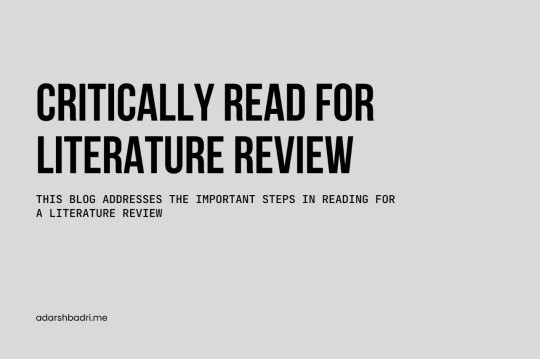
View On WordPress
#annotated bibliography#citation tracing#citation tracing in literature review#critical analysis in literature review#do arguments fit well#how to literature review#how to read for literature review#literature review#literature review example#literature review format#literature review in India#literature review in research#literature review meaning#literature survey#next steps in literature review#online sources#process of critical analysis#project muse#references and bibliography#review essays#review of literature#structure of an argument#what is research literature review#what is review of literature in research
4 notes
·
View notes
Text
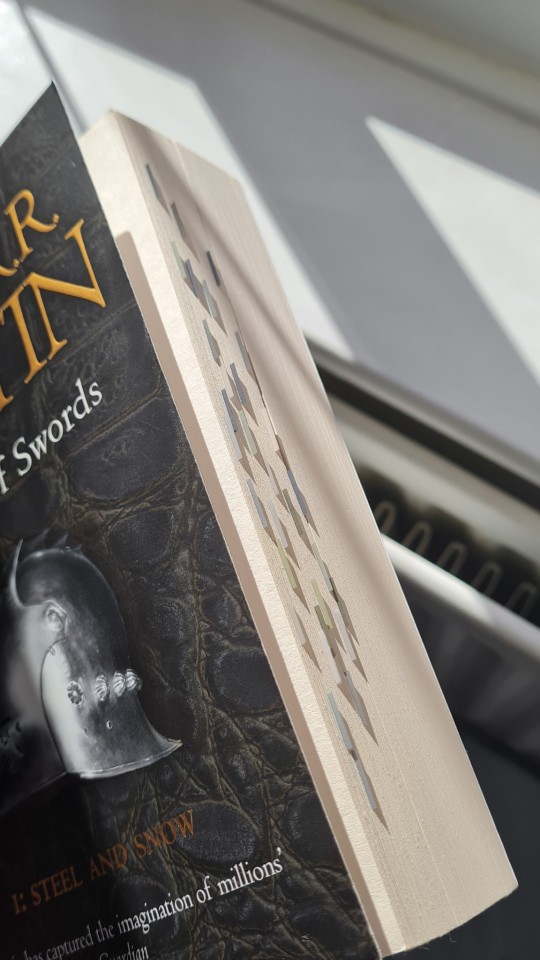
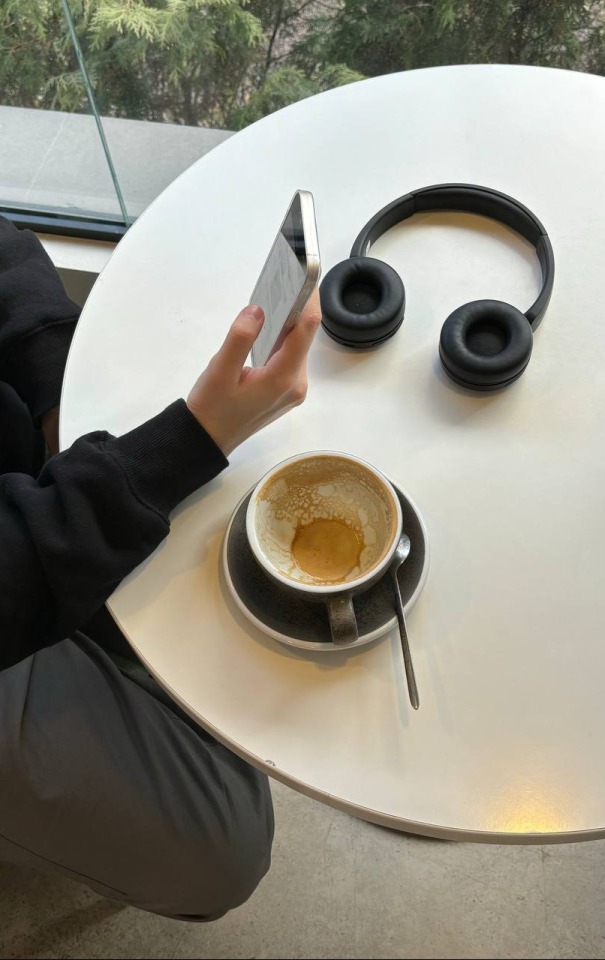
guess who (finally) finished a storm of swords, part one 🖤 being back in this world truly was an experience unlike any other. the world that george r r martin has crafted here is unrivalled — it really is one of the greatest fantasy epics <3 i cannot wait to read part two later this month!!
for now, i'll be starting my next book for my classic tomes challenge 👀 very excited
#a storm of swords#george r r martin#a song of ice and fire#book review#4.5 stars#literature aesthetics#books#book#bookish#bookblr#bookworm#bookstagram#dark academia#booklover#books and libraries#reading update#studyblr#annotations#tabs#annotated bibliography#annotating books#study space#study hard#study tips#study#cafe#beige#lifestyle#aesthetic
220 notes
·
View notes
Text
Don't have time to work on assignments after work?
DM or
Email or iMessage
#researchpaper #homework #casestudy #essay #discussionpost #paperdue #paper #PICO #peerresponses #annotatedbibliography #nba #basketball #tiktok
1 note
·
View note
Text
I’m putting together an offer of an Annotated Bibliography for Fandom Trumps Hate and they suggest putting together some examples. I don’t have an example of exactly the type of thing I’m offering but here are a couple of things that are close.
Annotated Bibliography for Harmonious Kinship This annotated bibliography I wrote for my most recent fic is the closest to what I’m proposing for FTH. This is the format I would use for the single subject bibliography that I’m offering to create, with an introduction and then each item in bold with notes afterwards.
Chinese History Starter Pack This is a rec list of academic works about Chinese history that can be read with little or no background.
Worldbuilders Book Club Rec List The Worldbuilders Book Club was a year-long challenge to read non-fiction in 12 different categories.. This the rec list I put together for that challenge with books in each category I’m including both of these as examples of my writing about non-fiction.
1 note
·
View note
Text
Whyyy does making an annotated bibliography have to be so fucking hard for my brain to just sit down and do
Like it is one of the most excruciatingly boring things to have to do I despise them I hate them and yet I have to do at least FOUR of these stupid fucking things this semester
1 note
·
View note
Text
Annotated Bibliography for my paper about women dressing as men in maritime history.
NOTE: The names and pronouns I use are the ones that are used in the sources. From the literature I've read, historians use birth names and pronouns because the concept of gender has shifted over the centuries and we can't say for certain that someone fully adopted a name or pronouns. People such as Hannah Snell and Catalina de Erauso dressed as men for the majority of their lives, but use their birth names and pronouns in their memoirs. De Erauso's memoir is translated from Spanish, but it should be noted that she used masculine versions of words to describe herself.
Seth Stein LeJaq, “An Odd Affair Which Lately Happened,” in Sexual and Gender Difference in the British Navy, 1690-1900 (Oxford: Taylor & Francis Group, 2023). Link
This one makes me lose it, I love it so much. The author's argument is that the British Navy was generally tolerant of non-cisgender and non-heterosexual people unless there was some kind of power imbalance or coercion involved in sodomy. I can't believe the 18th century British Navy can have trans sailors and we can't even in 21st century USA BRO. This source is an edited collection, so there are primary sources and the editor provides argumentation that connects the sources together. This specific article "An Odd Affair Which Lately Happened" is about a sailor who was found to be female but allowed to serve in the Navy as a cook and keep a male identity. This source also contains the story about an intersex sailor I mentioned in this post.
The Female Soldier: Or, The Surprising Life and Adventures of Hannah Snell [1750], ed. Diane Dugaw (Los Angeles, CA: William Andrews Clark Memorial Library, University of California, 1989). Link
Hannah Snell is special to me because she became a Marine. Snell fought for the Royal Marines from 1747-1750. This is her biography which she orated. Snell left the Marines after complications with wounds she received in battle. Snell maintained a male persona in civilian life. It was difficult for Snell to live in a patriarchal society with her identity.
Ellen Malenas Ledoux, “The Queer Contact Zone: Empire and Military Masculinity in the Memoirs of Hannah Snell and Mary Anne Talbot, 1750–1810,” The Eighteenth Century 60, no. 3 (2019): 223–48. Link
Ledoux talks about Hannah Snell and Mary Anne Talbot who both served in the navy. Ledoux discusses their queer identities in and after their service. Their lives are prominent examples of women who dressed as men, a category of people within queer history. Their place in society informs queer history as a whole.
Catalina de Erauso, Lieutenant Nun: Memoir of a Basque Transvestite in the New World, ed. Majorie Garber and trans. Michele Stepto and Gabriel Stepto (Boston: Beacon Press, 1996). Link
This is a memoir of Catalina de Erauso, a woman who escaped a nunnery and became a conquistador in South America, fighting for Spain and committing crimes. She revealed her sex as female to a priest and returned to Europe, retaining her identity. She lived the rest of her life as Antonio de Erauso in Mexico.
Marcus Rediker, “When Women Pirates Sailed the Seas,” The Wilson Quarterly 17, no. 4 (1993): 102–10. Link
Rediker focuses on Anne Bonny and Mary Read. He places a particular emphasis on their gender and their impact on culture. The two women found piracy as a way to escape their marginalized lives and rise up in their society. Rediker also puts them in context with other instances of cross-dressing women.
Tagging @angryblueoat @hervey-gervey-chip
Tweaking in my room because I get to read and write about queer sailors for my midterm
#i started getting sleepy writing this so sorry that descriptions start to get lackluster#queer history#trans history#history#annotated bibliography#maritime history#age of sail#naval history#transgender#transgender history
40 notes
·
View notes
Text
Annotated Bibliography
Focus
The bias I am researching is: “People who speak dialect are less likely to rise on the social ladder.”
Sources List
“Roorda Laat Provinciale Helden Shinen in Verkiezingscampagne.” Roorda Reclamebureau, www.roorda.nl/werk/roorda-laat-provinciale-helden-shinen-in-verkiezingscampagne.
Oudenaarden, Jan. Wat Zeggie? Azzie Val Dan Leggie! / Druk Heruitgave: Een Onderzoek Naar Het Dialect Van Rotterdam. 2015.
NOS op 3. “Dealen Met Je Dialect: Op Je Werk | NOS Op 3.” YouTube, 22 Sept. 2017, www.youtube.com/watch?v=1Kc2uPZ2AJE.
Gevonden in Delpher - De Volkskrant. www.delpher.nl/nl/kranten/view? query=dialect&coll=ddd&identifier=ABCDDD:010870798:mpeg21:a0068&resultsidenti fier=ABCDDD:010870798:mpeg21:a0068&rowid=1.
“Waarom Hebben We Vooroordelen Over Dialecten En Accenten? - BNNVARA.” BNNVARA, www.bnnvara.nl/artikelen/waarom-hebben-we-vooroordelen-over-dialecten-en- accenten.
Gevonden in Delpher - Nederlands Dagblad : Gereformeerd Gezinsblad / Hoofdred. P. Jongeling ... [Et Al.]. www.delpher.nl/nl/kranten/view? query=Rotterdams+dialect&coll=ddd&identifier=ddd:010569820:mpeg21:a0053&resul tsidentifier=ddd:010569820:mpeg21:a0053&rowid=1.
Magazine, Gers! “Nijntje in De Diergaarde.” Gers! Rotterdam | Door Gers! Magazine, gersrotterdam.nl/verhalen/stad/647/nijntje-in-de-diergaarde.
“Dealen Met Je Dialect: Trots Op Je Taal | NOS Op 3.” YouTube, 24 Sept. 2017, www.youtube.com/watch?v=ykQ6twtLMw0.
Alicante, Team. “Dialecten Verdwijnen: ‘Over 500 Jaar Kunnen Belgen En Nederlanders Elkaar Niet Meer Verstaan.’” NPO Radio 1, 3 Nov. 2020, www.nporadio1.nl/nieuws/podcast/ 5493e6e6-88f1-4ca9-89ae-f3199aed7a1d/dialecten-verdwijnen-over-500-jaar- kunnen-belgen-en-nederlanders-elkaar-niet-meer-verstaan.
Primary sources
1. Family Archive. The video’s, photo’s and stories from my own family give insight in how your occupation and place on social ladder influences how much you speak dialect, and therefore how you are seen within society. It also shows how dialect changes over the years and how our parents and grandparents play a big role in transferring dialect to us. I plan to use this source as a red line through my story to make it personal, easier to grasp for the viewer/reader and to take a clear position in this story and to tell the story from this particular perspective.
2. Ciska and Petra, Primary school teacher’s. Both Ciska and Petra currently both work at a primary school, but their opinions about the eduction or oppression of a dialect differ a lot. They are actually both on the other side of the spectrum. One is in favor of using dialect in the classroom and does it herself, and the other is strictly against it since it would effect your chances on a good job in the future. I plan to use this source to see if and how education can influence the preservation or suppression of Rotterdam dialect and to see if it can live next to each other.
3. Delpher Delpher is a website where all kinds of printed articles are archived online. This goes back until the 1800’s and there are a lot of historical articles to find about dialect, and also specifically Rotterdam Dialect, from various news sources. There are articles that confirm my thoughts about the development of Rotterdam dialect and why it is fading, but there are also questions and other perspectives which you can read here. I plan to use Delpher to search for articles that can confirm or debunk the interpretations I have about how and why the Rotterdam dialect is fading.
4. Wat zeggie? Azzie val dan leggie!, by Jan Oudenaarden. In this book the author has done research about different kinds of aspects of the Rotterdam. dialect. He dives into words, grammar, expressions, nicknames etc. Why do we say certain words and where does it come from? I plan to use this source as a research document what shows me more about the heritage of the language and to see what it can tell me about the identity of the Rotterdam population. Also I can hold this as a reference to see how people used to speak dialect and how much knowledge the younger residents of Rotterdam currently have.
5. Video: NOS op 3 “Dealen met je dialect.” In this video various biasses about people that speak dialect are shared and how this affects these people in their search for a job or when they are at work. They tell about their experience of discrimination based on their dialect and how they sometimes not get the job because of that. This sometimes means changing their identity while they often are proud of their heritage. I plan to use this source to gain more insight into what people are disapproved of when speaking a dialect and what actions they take to change this.
1 note
·
View note